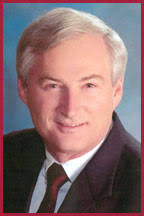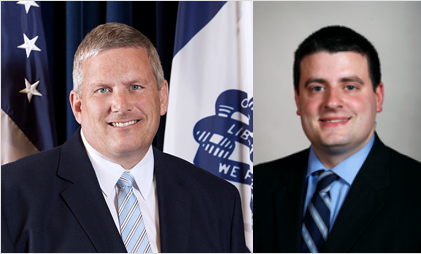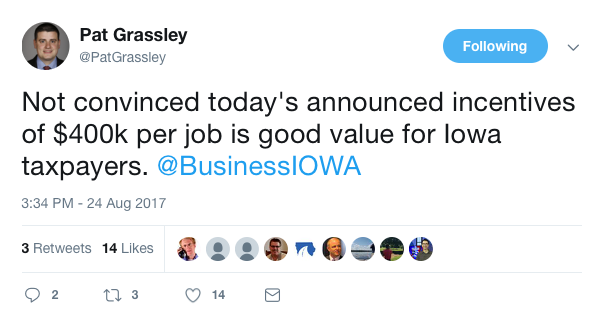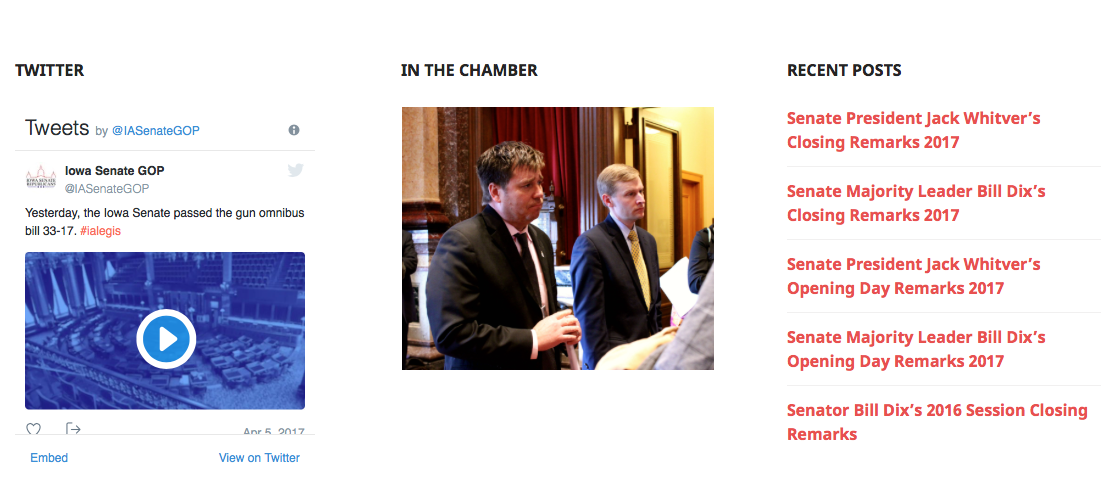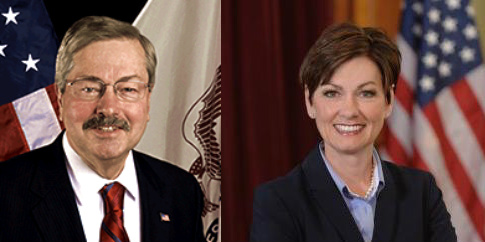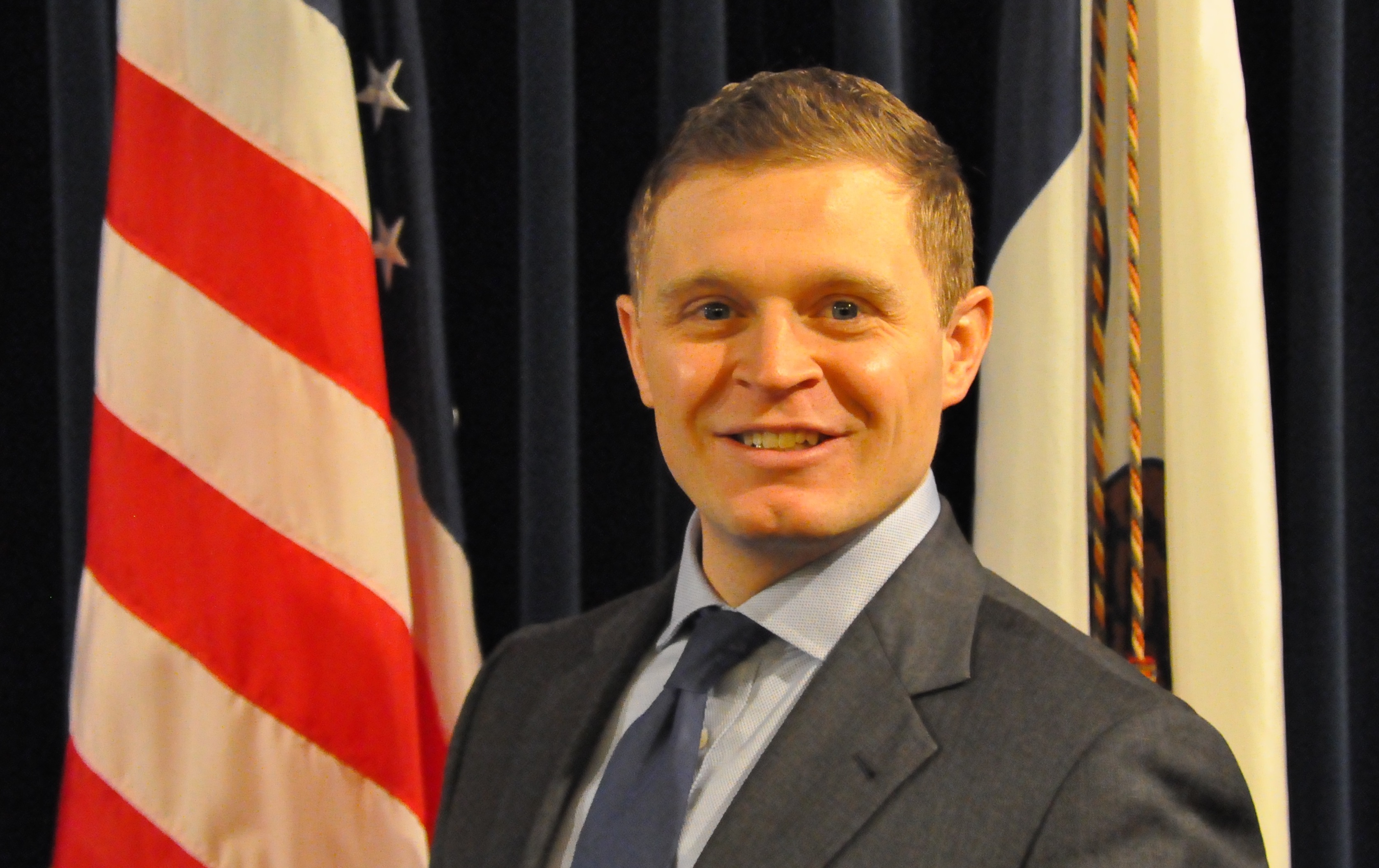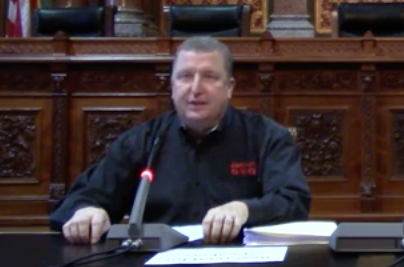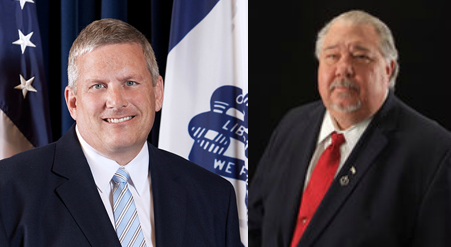Minutes ago the U.S. Senate confirmed Governor Terry Branstad as ambassador to China, clearing the way for Branstad to resign on Wednesday, allowing Lieutenant Governor Kim Reynolds to be sworn in as governor. The Senate Foreign Relations Committee had unanimously approved Branstad’s nomination earlier this month, but twelve senators voted against advancing his nomination last week, and thirteen senators voted against him on the floor today. The opponents included Democrats Sherrod Brown of Ohio, Cory Booker of New Jersey, Elizabeth Warren of Massachusetts, and independent Bernie Sanders of Vermont–all considered potential presidential candidates in 2020. In a list-building e-mail earlier this afternoon, Brown wrote,
Branstad is notorious for busting collective bargaining rights in his state. Legislation he signed into law will force Planned Parenthood clinics to close this summer.
How can we make an anti-labor, anti-women’s rights politician in charge of U.S. relations with a country that has large human rights problems, especially in the areas of women’s and workers’ rights.
Given how unpopular Branstad is with highly-engaged Democratic activists, a vote against confirming the governor certainly wouldn’t hurt any of these senators in the next Iowa caucus campaign.
Senator Amy Klobuchar of Minnesota, also a possible Democratic presidential contender, supported Branstad’s confirmation. I’ll update this post later with full details on the Senate vote once the roll call has closed and some political reaction.
UPDATE: The thirteen senators who voted against Branstad were Tammy Baldwin of Wisconsin, Richard Blumenthal of Connecticut, Booker, Brown, Tammy Duckworth of Illinois, Kirsten Gillibrand of New York, Mazie Hirono of Hawaii, Ed Markey of Massachusetts, Gary Peters of Michigan, Sanders, Chuck Schumer of New York, Debbie Stabenow of Michigan, and Warren. All are Democrats except Sanders, who caucuses with Democrats. All represent states where organized labor is relatively strong.
SECOND UPDATE: Added below Branstad’s statement and other comments on his confirmation, as well as Senator Chuck Grassley’s speech on the Senate floor before today’s vote.
I had to laugh hearing Grassley “express my disappointment and frustration with the seemingly endless obstruction on the part of the minority.” He is bent out of shape because Majority Leader Mitch McConnell had to file cloture on Branstad’s nomination:
We could have approved this nomination with just a few minutes of debate time, yet, the minority required that we use 30 hours – not because they wanted to debate the merits of the nominee, but simply to delay the business of this body.
It’s unfortunate that their delay has kept an eminently qualified individual from getting into the job to promote American interests in China sooner.
Grassley and his fellow Republicans didn’t give the eminently qualified Judge Merrick Garland even a hearing, let alone a floor vote for his nomination to serve on the U.S. Supreme Court.
Continue Reading...


